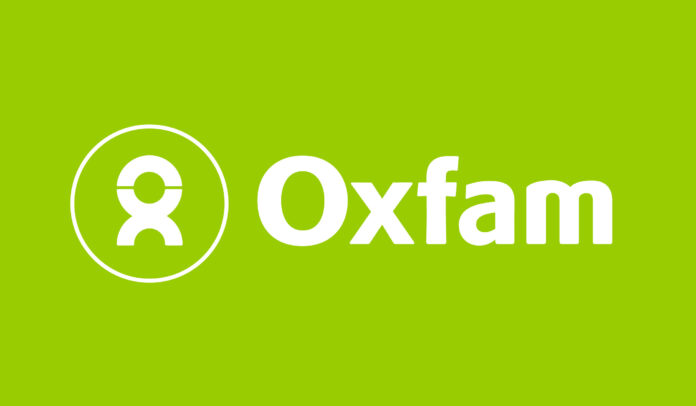From Mohammed Nasir Shuaibu BAUCHI
It has observed that 87 percent of the International Monetary Fund’s (IMF) COVID-19 loans are requiring developing countries that have been denied equal access to vaccines and are facing some of the world’s worst humanitarian crises to adopt tough, new austerity measures that will further exacerbate poverty and inequality.
This was contained in press statement by Rita Abiodun, Communications Officer, Oxfam in Nigeria that new analysis by Oxfam finds that 13 out of the 15 IMF loan programs negotiated during the second year of the pandemic require new austerity measures such as taxes on food and fuel or spending cuts that could put vital public services at risk. The IMF is also encouraging six additional countries to adopt similar measures.
The release further contained that in 2020, the IMF deployed billions in emergency loans to help developing countries cope with COVID-19, often with few conditions or none at all.
However, Recently, IMF Chief, Kristalina Georgieva urged Europe not to endanger its economic recovery with “the suffocating force of austerity”. Yet, over the past year, the IMF has gone back to imposing austerity measures on lower-income countries.
“This epitomizes the IMF’s double standard: it is warning rich countries against austerity while forcing poorer ones into it. The pandemic is not over for most of the world. Rising energy bills and food prices are hurting poor countries most. They need help boosting access to basic services and social protection, not harsh conditions that kick people when they are down”, said Nabil Abdo, Oxfam International’s Senior Policy Advisor.
According to Oxfam in Nigeria’s Country Director, Dr. Vincent Ahonsi “Nigeria is a country of spectacular inequality and astounding level of poverty which cannot afford the IMF’s austerity pill, as that could further worsen inequality and plunge more Nigerians deeper into poverty.”
“Instead, the IMF needs to stop selling it’s austerity ideas to Nigeria and facilitate an easier access to emergency financing for socio-economic infrastructure and human capacity development. The agency also needs to encourage Nigeria Government to lessen the burden on 99% of the people who happen to be at the bottom of the pyramid, and tax the super-rich 1% more appropriately through progressive tax regimen,” said Dr. Vincent Ahonsi.
In West Africa, IMF aggressively pressed the governments to slash and burn their way out of COVID-19 induced economic loss, through its COVID-19 loans. As a result of the fund’s pressure, 14 out of 16 West African governments intend to cut their national budgets by a combined US$69.8 billion between 2022 and 2026. For example, Nigeria is to cut its budget by US$30.6 billion and Burkina Faso is to cut its budget by US$2.9 billion.
Kenya and the IMF agreed a $2.3 billion loan program in 2021, which includes a three-year public sector pay freeze and increased taxes on cooking gas and food.
More than 3 million Kenyans are facing acute hunger as the driest conditions in decades spread a devastating drought across the country while nearly half of all households in Kenya are having to borrow food or buy it on credit. 9 countries including Cameroon and Senegal are being required to introduce or increase the collection of value-added taxes (VAT), which often apply to everyday products like food and clothing, and fall disproportionately on people living in poverty.
Sudan, where nearly half of the population is living in poverty, has been required to scrap fuel subsidies which will hit the poorest hardest. The country was already reeling from international aid cuts, economic turmoil and rising prices for everyday basics such as food and medicine before the war in Ukraine started.
Over 14 million people need humanitarian assistance (almost one in every three people) and 9.8 million are food insecure in Sudan, which imports 87 percent of its wheat from Russia and Ukraine. 10 countries including Kenya and Namibia are likely to freeze or cut public sector wages and jobs, which could mean lower quality of education and fewer nurses and doctors in countries already short of healthcare staff as Namibia had fewer than six doctors per 10,000 people when COVID-19 struck.
New analysis by Oxfam and Development Finance International (DFI) published recently revealed that 43 out of 55 African Union member states face public expenditure cuts totaling $183 billion over the next five years. If these cuts are implemented, their chances of achieving the UN’s Sustainable Development Goals will likely disappear.
In 2021, an Oxfam review of IMF COVID-19 loans showed that the Fund encouraged 33 African countries to pursue austerity policies in the aftermath of the health crisis. The pandemic has not ended but these policies are already taking shape across Africa.
The analysis also showed that African governments’ failure to tackle inequality ― through support for public healthcare and education, workers’ rights and a fair tax system ― left them woefully ill-equipped to tackle the COVID-19 pandemic.
The IMF has contributed to these failures by consistently pushing a policy agenda that seeks to balance national budgets through cuts to public services, increases in taxes paid by the poorest, and moves to undermine labor rights and protections.
As a result, when COVID-19 struck, 52 percent of Africans lacked access to healthcare and 83 percent had no safety nets to fall back on if they lost their job or became sick.
“To help Nigeria, and the majority of Nigerians who are daily finding it more difficult to meet their basic human needs, the IMF should lead the conversation on how Nigeria will suspend its huge debt servicing costs, as a pathway towards a comprehensive debt relief for the country. That way the IMF will be working for a fairer today and a better tomorrow for Nigeria and Nigerians” said Dr. Vincent Ahonsi







